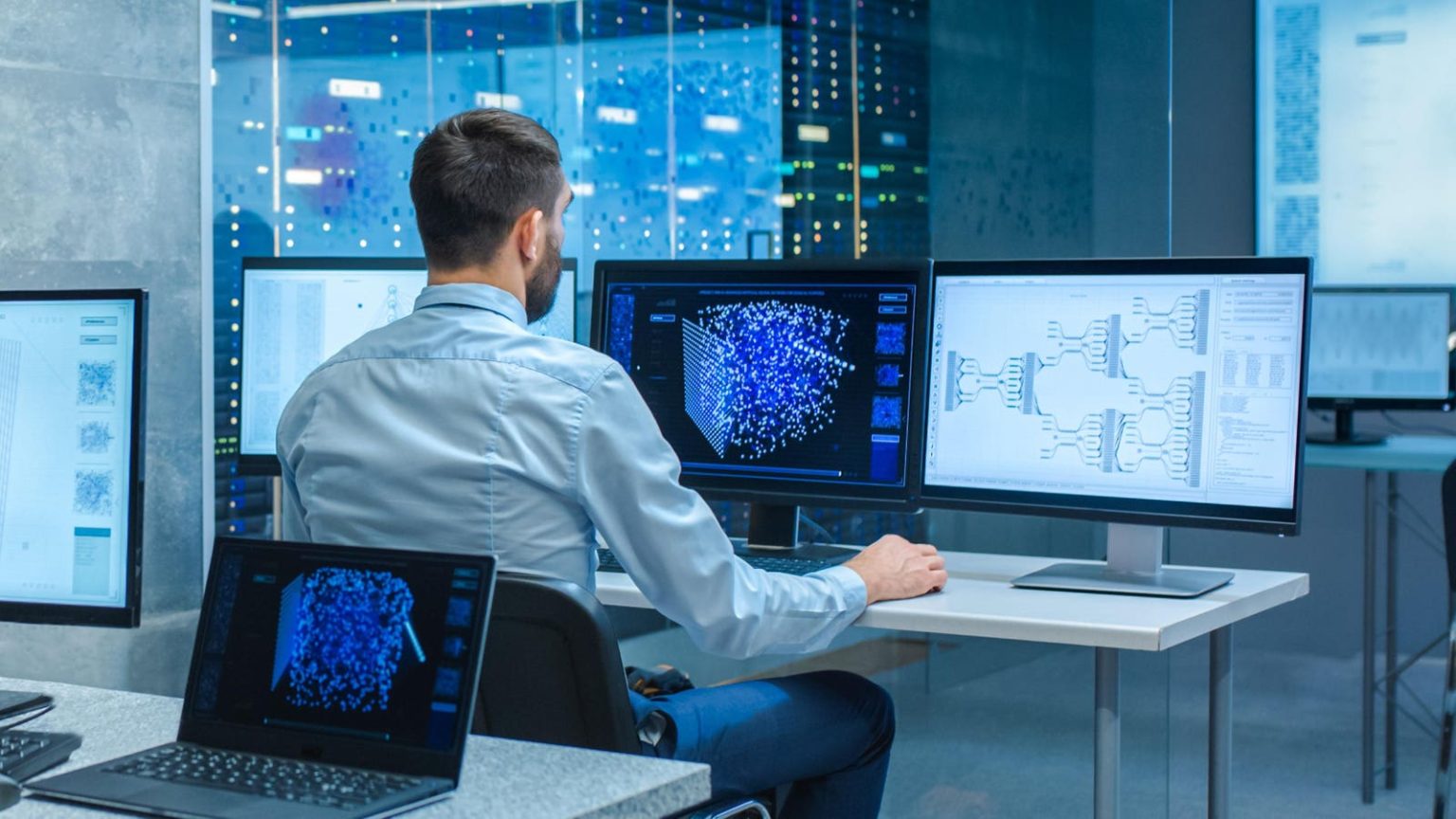The major buzz about the digital transformation in manufacturing has been focused heavily on advanced automation of factory floor operations. That drives overall productivity improvement, and also addresses plant staffing, which has proven to be a long-term challenge.
An even greater staffing challenge now for many operations, though, is programmers. With Industry 3.0 already having driven so much of our factory floor operations to be computerized, the increasing scarcity of industrial programmers is fast approaching an existential crisis mode. That’s where Oqton comes in. “The median age of programmers is 54 and getting older,” said Dr. Ben Schrauwen, the company’s CEO and co-founder. “That’s why we started Oqton–to bring together production realities and manufacturing engineering. We apply technology where there’s a talent gap, like additive manufacturing, dental labs, and CNC–industries that are really limited by the talent gap in their ability to grow.”
Founded in 2017 in San Francisco, Oqton uses artificial intelligence and machine learning to automate the programming of industrial technologies including CNC machines, AM, and 3D scanning. The company was purchased by 3D Systems of Rock Hill, South Carolina, the founding company of the 3D printing industry, in a $180 million acquisition in late 2021. “We’re a wholly owned subsidiary,” Schrauwen explained. “We operate as a separate entity and run independently.” That’s critical given Oqton’s work with other additive manufacturing vendors such as EOS, Stratasys and Trumpf. 3D Systems has also integrated previous software acquisitions such as its Geomagic reverse engineering platform and its 3DXpert build simulation software into the Oqton portfolio.
“We utilize ML and AI to program metal 3D printing machines,” said Schrauwen. “We’ve been able to demonstrate in the workplace that it actually works.” In addition, Oqton’s AI also automates other work processes. “We have tech that knows what’s happening on the factory floor. It captures orders, knows the history of what’s been done in the past, looks at past quotes and uses AI to estimate job times and costs. AI is able to do what the macro rules of the 1990s couldn’t.”
Thus far the company has rolled out solutions for business segments including energy, automotive, aerospace, dental and medical. “The first industry we applied our software to was dental tech,” Schrauwen said. “Now we’re running lights-out operations there.”
One of Oqton’s customers in that vertical is Bertram Dental Lab in Menasha, Wisconsin. Founded in 1976, it specializes in the fabrication of removable partial denture frameworks. “We were really early to market and were one of the first doing metal 3D printing,” said Tim Bertram, the company’s co-owner. “Now we’re probably the biggest in the U.S.”
Bertram came to Oqton after problems with a different solution provider. “We were working with another software vendor for three or four years,” Bertram added. “But we kept running into roadblocks with being able to scale production. We would have one person spending an entire day nesting parts and building plates.” Oqton’s software solutions allowed Bertram to eliminate this manual work. “CAD Team members are now enabled to invest their time in less tedious tasks. Oqton AI has automated our build preparation based on our profile settings. This provides increased accuracy, efficiency and control. Oqton’s unmatched high-density nesting is genius, increasing our build volumes by 20% without sacrifice.”
What’s more, the efficiency increases also provided volume debottlenecking. “Just from the sheer volume increase, giving us an additional 20% on five printers, it was like gaining another printer,” Bertram said.” “The ceiling has been removed when it comes to scaling for 3d printing.”
Schrauwen sees tremendous potential to build upon those successes. “In medical devices, oil and gas, and automotive, we already have several hundred customers,” he said. “Oqton is still very young, and is in hypergrowth mode. Our technologies could be applied in sheet metal, carbon fiber, and so on. We have plans to add those capabilities. Another area we’re investing in heavily is quality control and in-process monitoring. This is often very manual, so we’re developing AI quality control techniques. Many machines now have advanced monitoring built in. We’re using AI to develop analytical techniques to take advantage of that.
“Automation with AI is really starting to take off,” he continued. “Things people have talked about for decades are finally feasible, with algorithms and computer technology getting to where they need to be. Companies set up the right way can really start leveraging that, and Oqton is set up the right way.”
Read the full article here





